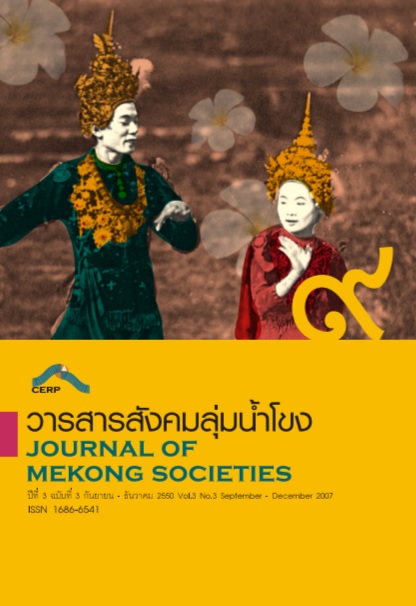Lao Court Music in the Age of Change
Main Article Content
Abstract
This research focuses on Lao classical music and its contexts after the political change from the royal Lao government to socialism in 1975. This work is based on primary and secondary sources, including interview data collected from Laotian musicians and related persons. The results are as follows. Classical music was a popular practice in the royal palace in terms of musical instruments, ensembles, and compositions. During the period of the Royal Lao government, Lao music was patronized by the king, who enthusiastically supported the development of musical compositions. During the French colonial period (1893-1954) and until the intervention of the United States, there were calls for independence, and Lao classical music was linked with revolutionary songs. After the socialists won control over the country, classical music became the music for the masses. Since 1975, Lao musical ensembles developed into mahori, a mixture of folk and ethnic musical instruments and melodies to create a musical form for all the people. In part of compositions consist of composition for listening, ceremonies, performances, revolution. All are short, abbreviated from the vocal texts which opposite to socialism and put in classical composition. Changed in Laos classical music related to changing concepts of Lao national identity, and to the use of the Lao performing arts to address the critical issue of national unity for a multicultural society. During the post–cold war socialist era, the Lao government established institutions in charge of music and performance. However, after the long period of discontinuity with local wisdom, a number of compositions were lost and practical skills did not develop. Musical instruments were not perfected in form and the knowledge of creating musical instruments was lost.


